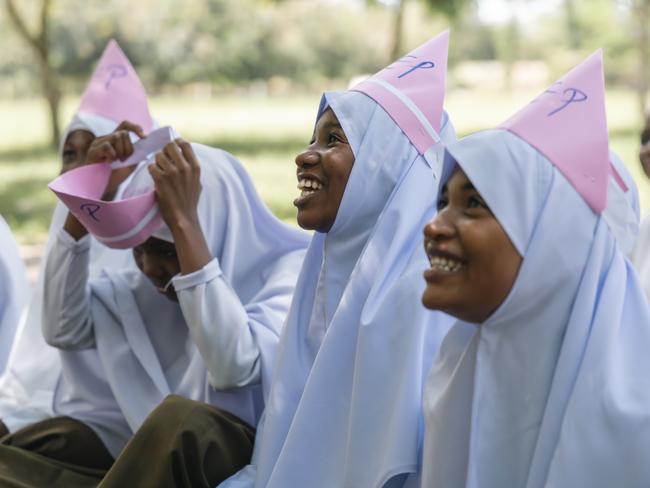
I saw him speak a few weeks ago, at an event for Room to Read. He came across as a whole lot of charming and a little bit shy, but you could tell that he was passionate about the cause, and why wouldn’t he be?
As the name suggests, Room to Read helps children around the world to read, and I’m not sure there’s anything more important.
The program was formed two decades ago by an American, John Wood, formerly of Microsoft. He was trekking in Nepal when he came upon a remote school trying to operate with a handful of books for 450 children. He expressed his shock and the headmaster said: “Perhaps, sir, you will someday come back with books.”
Did he deliver? You bet he did, returning with more than 3000 books for Nepalese children. For he, too, had found his purpose. At age 35 he quit his big job, founded Room To Read, and wrote a book called Leaving Microsoft to Change the World.
Which brings me back to Cannon-Brookes. He remembers picking up that book at an airport during a trip somewhere. It blew his mind. He wanted to help. He joined the board of Room to Read and earlier this year, became the global chairman. He has taken his children to see the Room to Read programs in developing countries in action; they got a bit of a wake-up call as to the extreme privilege we all enjoy here in Australia, when they asked to use the local bathroom.

So, what does Room to Read do?
It gives all kids, but especially girls, a shot at a decent future, basically. It tries to keep them in school, past puberty. In so doing, it pushes back the age of first pregnancies and arranged marriages.
Arranged marriages.
When you say it like that, it sounds like beastly fathers, forcing young girls to the altar against their will. Many fathers of daughters in developing countries would in fact love to see their girls reading books and going to university, but the dire poverty in many communities makes it impossible, and so the girls don’t get literate.
They get married.
And again, it’s here that Room to Read seeks to make a difference. Janelle Prescott, who is an associate director of the program here in Australia, says Room to Read has led to “a lot of girls who are the first in their family to graduate high school, the first in their family to go to university. We have seen girls become nurses, we have seen them become teachers. The program changes lives.”

Room to Read works with governments and schools around the world. It helps train teachers. It provides books, and has also published more than 4000 books in dozens of languages. It uses local authors and illustrators to bring those books to life. In short, it is trying to spark that early love of reading that so many of us know so well.
Some of Room to Read’s advocates are writers. Nguyen Phan Que Mai, a Vietnamese poet and writer, explained her journey this way: “When I was young, my family worked in the rice fields and I would sell vegetables by the roadside. Lucky for me, my family had a bookshelf” which her father built, using bamboo from the garden. “I devoured books,” she says. “I read them until the covers fell off.”
Through books, she realised she was not alone in wanting to improve her circumstances. And the girls she now seeks to assist are not alone, either. “We all have a torch inside of us that can burn bright ... I see your light. I see the strength in you, the wonderful girl you are, and the woman you will become.”
Look, we all undestand this don’t we: put a book in front of a child, they will do anything to be able to read it.
Put a girl in front of a blackboard, and just watch her go.
Room to Read is doing great work. It was an honour to be briefed on its activities around the world. Not everyone has coin the way Cannon-Brookes has coin, but if you do have some spare pennies they promise to put every cent to good use.

■ ■ ■
I’ve been following the news about Booktopia, and it’s just awful, isn’t it? For those who don’t know, they’re an Australian online bookstore, who happily promoted Australian authors ahead of the big internationals. They invested in a great website, and they had a big warehouse full of books, but it’s all gone a bit pear-shaped, in part because book sales are down, down, down this year (with some precious exceptions). They’ve had to lay off staff and the share price at time of writing was down 98 per cent, which is grim. They may not survive. That would be a shame.
■ ■ ■
Today’s pages: relationship advice from an effervescent psychologist; an extract from a book by a funeral director; a new poem; and the very first review by Sophie Norton, who started at The Australian last year. Enjoy!







You may know Mike Cannon-Brookes as the billionaire co-founder, with Scott Farquhar, of the Australian technology company, Atlassian. Maybe you’ve seen him on the Rich List. He’s the one with the long hair and the baseball cap.